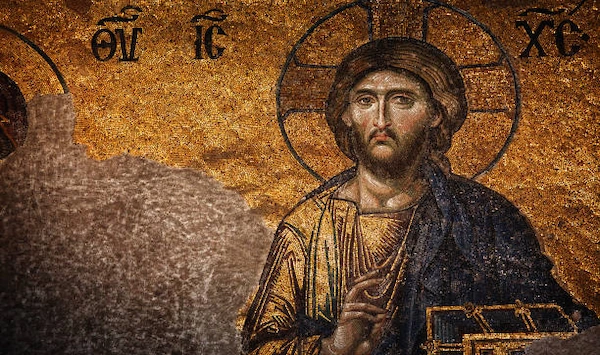
Introduction to the Sophia of Jesus Christ
The Sophia of Jesus Christ constitutes a significant text within the Gnostic corpus, offering insights of great depth into the philosophical and spiritual dimensions of the Gnostic tradition. As part of the Nag Hammadi library, a collection of early Christian and Gnostic writings discovered in Egypt in 1945, it represents a unique perspective within the Gnostic literature, emphasizing the role of knowledge (gnosis) as a means to achieve spiritual enlightenment and liberation from the material world.
Philosophical and Spiritual Aspects
The Sophia of Jesus Christ represents a dialogue between Jesus and his disciples, with a particular focus on the figure of Sophia, or Wisdom. The text examines a number of key themes, including divine knowledge, the nature of reality, and the relationship between humanity and the divine. One noteworthy aspect is its portrayal of Sophia as a feminine aspect of God, which contrasts with traditional patriarchal representations found in canonical texts.
The dialogue begins with questions posed by the disciples regarding salvation and knowledge. Jesus responds by emphasizing that true understanding comes from within rather than through external authorities. This reflects a central tenet of Gnosticism: that salvation is achieved through personal insight rather than adherence to dogma. A key quotation encapsulating this idea is: <<For I have come to teach you about knowledge; for it is through knowledge that you will be saved>>.
The text also delves into cosmology, describing how Sophia emanated from the divine pleroma (the fullness of God) but fell into ignorance due to her desire to know more about the divine realm. This narrative illustrates the Gnostic belief in a flawed creation process where ignorance leads to suffering. The fall of Sophia serves as an allegory for humanity’s own quest for enlightenment amidst ignorance.
Influences on Gnostic Tradition
The Sophia of Jesus Christ significantly influenced Gnostic thought by reinforcing several key beliefs.
Knowledge as Salvation
The text emphasizes the importance of gnosis, or esoteric knowledge, as the pathway to spiritual awakening. This stands in stark contrast to orthodox Christianity, which prioritizes faith as the means to salvation. In Gnostic belief systems, knowledge is not merely intellectual but is transformative and essential for liberation from ignorance.
Dualism
The narrative is characterized by dualistic themes commonly found in Gnostic literature, portraying a worldview where the material realm is typically depicted as imperfect or malevolent, while the spiritual realm is regarded as pure and divine. This dualism reflects a fundamental tension between the physical and spiritual realms.
Feminine Divine
The figure of Sophia represents an important aspect of the feminine divine within Gnosticism. Her prominence challenges traditional male-centric theological perspectives by introducing a feminine element to divinity, suggesting that both masculine and feminine aspects are integral to understanding God.
Reinterpretation of Scripture
The Sophia of Jesus Christ engages in a reinterpretation of biblical narratives, offering alternative readings that diverge from orthodox interpretations found in canonical texts. This recontextualization allows for new understandings of familiar stories and figures within Christianity.
Personal Experience
A hallmark of Gnostic writings is the emphasis on personal spiritual experience over institutional authority. The text encourages individuals to seek their own paths to enlightenment rather than relying solely on established religious institutions or dogmas.
Unique Characteristics Compared to Other Gnostic Texts
What sets the Sophia of Jesus Christ apart from other Gnostic texts like the “Gospel of Thomas” or “Pistis Sophia” is its direct engagement with Christian teachings while simultaneously critiquing them through a lens that emphasizes wisdom and inner knowledge. While many Gnostic texts focus primarily on secret sayings or mystical experiences, this work provides an extensive dialogue format that allows for deeper exploration into philosophical questions about existence and divinity.
Moreover, unlike some other texts which may present more abstract concepts or mythological narratives without much practical application, this text engages directly with ethical implications—encouraging readers to seek wisdom actively in their lives.
Comparisons with Canonical Texts
When comparing the Sophia of Jesus Christ with canonical texts from Christianity, Judaism, and Islam, several differences emerge.
Authority vs Knowledge
In orthodox Christianity (e.g., New Testament), authority rests heavily on apostolic succession and church doctrine (Matthew 16:18). In contrast, the Sophia of Jesus Christ promotes personal revelation as central to understanding truth.
Nature of God
Traditional Jewish texts (e.g., Genesis) depict God primarily as transcendent and masculine; however, this text introduces a feminine aspect through Sophia’s character. Islamic theology emphasizes God’s absolute unity (Tawhid) without any gendered attributes; thus introducing femininity complicates traditional monotheistic views.
Salvation Conceptualization
In Christianity (John 3:16), salvation comes through faith in Christ’s sacrifice; whereas in this Gnostic work, salvation arises from self-knowledge and enlightenment.
Judaism focuses on covenantal relationships with God based on law observance (Torah), contrasting sharply with Gnostic views prioritizing inner wisdom over legalistic adherence.
Islam teaches submission to God’s will as expressed through Sharia law; however, this text suggests an internal journey towards understanding rather than external compliance.
Role of Women
Canonical scriptures often marginalize women’s roles within religious contexts; however, by elevating Sophia’s status as Wisdom personified, this text challenges patriarchal norms prevalent in both Judeo-Christian traditions.
Cosmology
Traditional religious cosmologies often present creation as fundamentally good (Genesis 1:31); conversely, many Gnostic texts—including this one—view material existence skeptically due to its association with ignorance and suffering.
Conclusion
The Sophia of Jesus Christ, with its unique blend of philosophical inquiry and spiritual exploration centred on the transformative power of wisdom, stands out within both the Gnostic tradition and wider religious discourse. The emphasis on personal gnosis challenges established doctrines of various faiths, while simultaneously inviting seekers to a deeper contemplation of their relationship with divinity – a characteristic that defines much of the enduring legacy of Gnosticism today.
Some Eloquent Quotes From the Sophia of Jesus Christ
<<I am the light that shines in the darkness>>
This quote emphasizes the idea of enlightenment and knowledge overcoming ignorance and despair. It suggests that spiritual understanding can illuminate one’s path, guiding them through difficult times.
<<Seek the truth with a pure heart>>
This reflects the importance of sincerity and intention in the quest for knowledge. It encourages individuals to approach their search for truth with honesty and humility, suggesting that a pure heart can lead to deeper insights.
<<The Kingdom of God is within you>>
This statement highlights the notion that divine presence and spiritual fulfillment are not external but rather found within oneself. It encourages introspection and personal growth as a means to connect with the divine.
<<Those who have ears, let them hear>>
This phrase calls for attentive listening and openness to wisdom. It suggests that understanding and enlightenment are available to those willing to receive them, emphasizing the importance of being receptive to spiritual teachings.
<<Knowledge is the key to salvation>>
This underscores the belief that gaining knowledge and wisdom is crucial for spiritual liberation. It implies that understanding oneself and the nature of existence leads to a transformative experience that can free one from suffering.
The Gnostic Texts Series
1. The Gnostic Gospels: Why Are They Interesting From a Spiritual Perspective?
2. Cosmology and Spirituality in The Book of Enoch
3. Sophia of Jesus Christ: Feminine Divine Wisdom in Gnostic Thought
4. Pistis Sophia: Gnostic Insights into Knowledge and Spirituality
5. The Apocalypse of Peter: Gnostic Insights on Morality and Judgment
6. The Nature of God in the Apocryphon of John: A Gnostic Interpretation
7. Spiritual Dualism in the Second Treatise of the Great Seth
8. Materiality and Spirituality in the Hypostasis of the Archons
9. The Tripartite Tractate: Bridging Gnosticism and Hellenistic Thought
10. Contrasting Beliefs: The Gospel of Thomas vs. Canonical Texts
11. The Gospel of Mary: Feminine Authority in Gnostic Spirituality
12. The Gospel of Truth: The Conception of Christianity According to Valentinus
13. The Gospel of Philip: Mary Magdalene’s Role and the Meaning of Sacraments
ARE YOU A TRUE GNOSTIC?
Identify and select statements in line with Gnostic theories.
Record the number of boxes selected and consult the matching profile.
0: True Gnostics would call you Hylic
1-2: You are hardly Gnostic
3-4: You are an evolving Gnostic
5-6: You are a true Gnostic or Pneumatic




